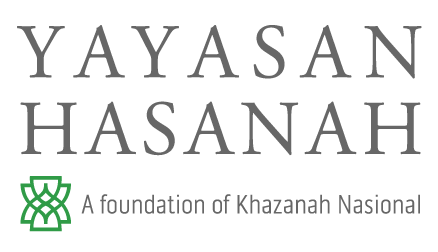Flex your shareholder muscles for Sustainability
Conservation may be an overused term but we must not allow that to desensitise us to the dire need to conserve and preserve our planet. The pandemic may have given us a moment to catch our breath with overall lower carbon dioxide emission rates but instead of losing our momentum, we must use this much needed breathing space to gather our energy to forge forward more forcefully in sustainability efforts.
Most of the organisation leaders in Malaysia and around the world understand that businesses play an important role in tackling challenges such as climate change, loss of biological diversity, food security, social justice and how this is impacting sustainability. Unfortunately, many leaders also believe that pursuing a sustainability agenda often contradicts their shareholders’ wishes, which is to maximise profit and build an empire. However, we are starting to see a decline in this trend, as efforts by leading governments around the world and private sector including capital markets have shown an increased demand to comply with Environmental Social and Governance (ESG) solutions, practice and investing. According to Bloomberg, in terms of fund availability, last year alone saw a record USD30 billion inflows into ESG funds into the developing world with Asia attracting USD 22.4 billion.
Therefore, leaving conservation to conservationists is not going to do the trick. We need concerted effort and activists at all corners pushing, driving, and making the change. Activists come in all shapes and sizes but there is a group of activists who can make the change from the top, down to leading broad stroke changes within each organisation. This underestimated group of eco-warriors are shareholders.
Activism can be defined as any type of investor influence on a company’s decisions, including institutional investors that recommend the other shareholders vote a certain way. Shareholders activism has been reported to be on the rise, becoming increasingly prominent in recent years, especially on a global level. These activists believe investing for social good is also good for the bottom line. And this also goes hand in hand with the growing awareness for markets to walk this sustainability journey through ESG investing and compliance within its organisations.
Recently, Yayasan Hasanah held an ILMU Hasanah webinar to speak to some exceptional individuals who all have a strong sense of obligation to support and champion Malaysia’s biodiversity. These individuals included Dato’ Andri Aidham Badri, a successful lawyer who moonlights to lead an outfit called Sudah Jumpa! to raise awareness on tiger conservation work in Malaysia, David Mizan Hashim, a well-known architect and founding partner of Veritas Architect and T.P Lim, a leading filmmaker who is also the person behind Dr. Jane Goodall’s inaugural visit to Malaysia and the setup of Roots and Shoots in Malaysia which promotes and facilitates youth volunteerism towards conservation awareness and activation. Although from diverse backgrounds, they have committed their own time and used their shareholder muscles to manifest progress in environmental conservation.
Founding director of Veritas Architects David Mizan Hashim shared valuable insights on how he promotes and encourages sustainability within his organisation, both internally and externally. Improving the quality of the built environment for the pleasure of humanity is one of the main factors that continues to drive David. According to David, the use of shareholder activism to push companies to improve their performance on social and environmental sustainability issues is effective. He said for him, he has woven these values and passion into his corporate work. Through leadership translating words and passion into action, David ’s firm has won numerous global awards for its green rated projects.
Good advice for those looking to use their influence to make the difference.
As told by Colin Mayer, a professor at the University of Oxford and an expert on corporate purpose, “The purpose of a company is not just to produce profits, it is to produce solutions to problems of the people and the planet and in the process produce profits.” Therefore, we need to be authentic in our pursuit, as an organisation’s core values are demonstrated through its action and subsequently, credibility is gained or lost through what you have achieved.
In brief, I believe that protecting the environment is not only the responsibility of environmentalists and conservationists alone. Like these individuals, we have seen many individuals from different walks of life venturing out to carry out conservation activities. This is done in their own time, with their own resources and networks; to support, drive or advocate for environmental conservation causes they feel strongly about.
These individuals may not be trained in environmental conservation, but this does not stop them from contributing and making a difference for the environment. My hope is for more Malaysians, especially if you’re a shareholder, a leader, a founder, to flex your shareholder muscles and to join in this movement and create a safer environment for all to live in.
Article to be attributed to Ivy Wong Abdullah, the Lead, Environment Impact Area at Yayasan Hasanah
